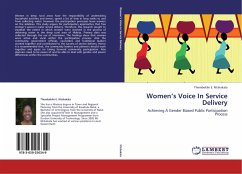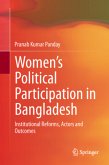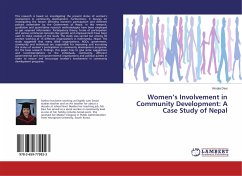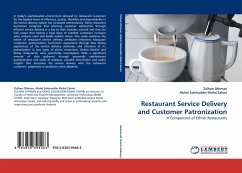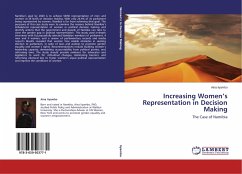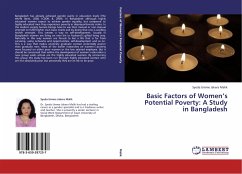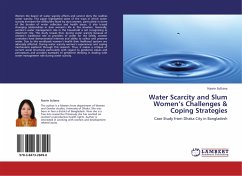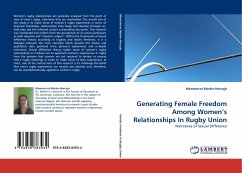Women in deep rural areas have the responsibility of undertaking household activities and hence, spend a lot of time in long walks to and from collecting water. However the participation processes leave women on the sidelines. This study argues for participatory approaches that free woman s voices in water service delivery. Therefore, this research sought to establish the extent in which women were involved in the process of delivering water in the deep rural area of Hlabisa. Primary data was collected through the use of interviews. The findings show that women were active and vocal within the participation process. Also the community, government officials, councillors and traditional leaders worked together and contributed to the success of service delivery. Hence it is recommended that, the community leaders and planners should work together and agree on taking forward community participation. Also planners need to be aware of and be able to deal with gender and power differences within the communities.
Bitte wählen Sie Ihr Anliegen aus.
Rechnungen
Retourenschein anfordern
Bestellstatus
Storno

